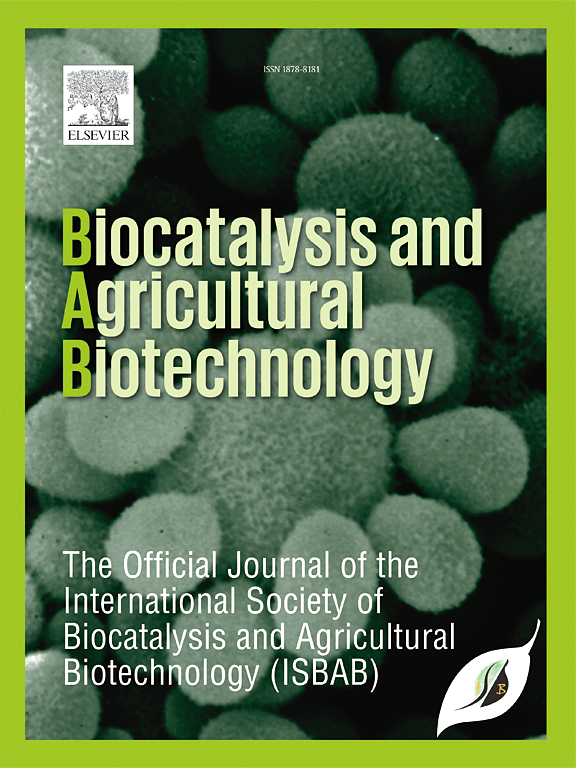Assessment of Bacillus derived indolic components on banana (Musa acuminata)
IF 3.4
Q2 BIOTECHNOLOGY & APPLIED MICROBIOLOGY
引用次数: 0
Abstract
Applying synthetic auxin is an age-old practice to induce in vitro rooting of plants. The poor root system enhances the mortality rate of tissue-cultured plants under in vivo conditions. The inclusion of the microbial auxin within the tissue culture medium may be a natural and potent alternative to synthetic auxin. On this background, the impact of Bacillus subtilis derived indole components as the cell-free extract has been tested on the unrooted and rooted banana plantlets under in vitro and in vivo conditions, respectively. In the present study, bacteria derived indole components were shown to substantially promote in vitro rooting, including the formation of lateral roots in bananas. In the primary hardening, carrier-free microbial treatments were found to be better than the carrier-based microbial treatments to improve various plant physiological growth parameters in bananas. The charcoal-based treatment was found to be better than that of the talcum-based treatment for the improvement of the studied physiological parameters. Hence, these cell-free extract-based microbial approaches may be adopted as a potent alternative to reduce the overall cost of micropropagation and to generate healthy plants as well.
求助全文
约1分钟内获得全文
求助全文
来源期刊

Biocatalysis and agricultural biotechnology
Agricultural and Biological Sciences-Agronomy and Crop Science
CiteScore
7.70
自引率
2.50%
发文量
308
审稿时长
48 days
期刊介绍:
Biocatalysis and Agricultural Biotechnology is the official journal of the International Society of Biocatalysis and Agricultural Biotechnology (ISBAB). The journal publishes high quality articles especially in the science and technology of biocatalysis, bioprocesses, agricultural biotechnology, biomedical biotechnology, and, if appropriate, from other related areas of biotechnology. The journal will publish peer-reviewed basic and applied research papers, authoritative reviews, and feature articles. The scope of the journal encompasses the research, industrial, and commercial aspects of biotechnology, including the areas of: biocatalysis; bioprocesses; food and agriculture; genetic engineering; molecular biology; healthcare and pharmaceuticals; biofuels; genomics; nanotechnology; environment and biodiversity; and bioremediation.
 求助内容:
求助内容: 应助结果提醒方式:
应助结果提醒方式:


